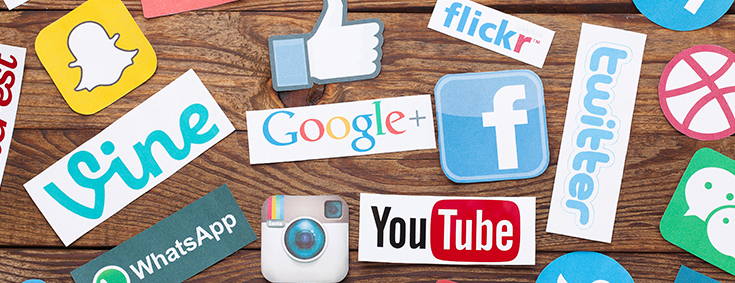How To Use Social Media For Lead Generation

In a world where we are constantly connected to the internet, it’s important to understand how businesses can use social media for lead generation. In this article, I will outline some of the benefits of using social media and provide tips on how you or your company can start generating leads with Facebook, Twitter, LinkedIn and YouTube.
Social Media is Free

It might not seem like it at first when you’re spending hours every day posting content on your profiles but once you get into a routine and see the results from your efforts, you will understand why social media is such a valuable tool.
You do not need to spend any money on advertising (which is out of the budget for small businesses) as there are no costs associated with posting content on Facebook or Twitter, and if you use hashtags correctly then you can even promote your posts to a wider audience while not spending a single dollar.
Social Media is Engaging
The key to lead generation through your social media pages is engagement. Every business owner knows that finding new customers can be tough, and you have probably exhausted many of the traditional means of going about it (advertising in newspapers/magazines, cold calling, etc.). To find these people on social media, you need to generate an interest in your brand.

Social media is the most powerful tool we have today for engaging our target audience. Take a look at some of your favorite brands on Facebook and observe how they interact with their fans and followers. What do they post? Are they posting content that is interesting or useful to their demographic? How often do they update their media?
By acting as an interested party, you are showing your target market that you care about their interests. People like to interact with people they know and respect, so when someone follows or likes a profile, it is a sign of trust in the brand. By engaging fans and followers through content, you can encourage people to check out your website, follow you on other social media platforms or even buy your product.
Generating Leads with Facebook

Facebook is one of the most powerful social media sites out there. It has a massive user base and a platform for business growth. The key to generating leads on Facebook is to create quality content that will get people talking, driving traffic back to your website and eventually resulting in interested parties signing up as customers or followers of your company’s blog.
Social media is all about the communities you create. To get your Facebook page started, you should try and find people who are interested
in what you have to say or sell. It’s important that your brand has something valuable to offer its followers or else there is no reason for them to follow it.
You can run paid ads on Facebook that target a specific demographic, which is an extremely powerful way to find new customers. You can also use Facebook’s targeting system for free by posting content that will be relevant and interesting to members of your target audience.
Generating Leads with Twitter

Twitter is great for lead generation because you can post short updates that contain valuable information or links to interesting websites. This way, new people who follow your account will quickly learn about your business and what you have to offer them.
If you have a blog with content that could be relevant to certain groups of people (such as articles on a particular topic), then you should use Twitter to reach out and connect with those people.
You can promote your website on Twitter by including links in your bio or 140-character updates, but it is important that the information you share is relevant to your audience.
Another good way to generate leads on Twitter is by asking questions or posting polls about a certain topic. People who follow you will likely start commenting on your post and sharing their opinions. This will create a greater connection between you and your followers, driving more traffic back to your website from Twitter.
Twitter also offers paid advertising services so you can promote your business to new audiences. These targeted ads offer a way for you to find potential leads that normally wouldn’t see your content.
Generating Leads with LinkedIn
LinkedIn is a professional social media platform, so you probably won’t be able to find as many leads using it. However, if you are looking for clients in industries such as business or technology, LinkedIn can be a useful tool for generating leads and building new connections.

LinkedIn is great for reaching people with common interests. For example, if your business is related to a specific industry, then you should consider joining groups that aren’t necessarily related to your business. By interacting with like-minded professionals and encouraging others to interact with your business, you can drive new leads back to your website, while also building connections that could lead to future clients or customers.
Like Facebook and Twitter, LinkedIn offers paid advertising options for generating leads. While Facebook and Twitter have powerful targeting systems, LinkedIn offers a unique opportunity to target users based on their job title or company name.
This can be extremely useful in lead generation because you can promote your business to people who would otherwise never see it while establishing yourself as an expert in your field.
Generating Leads with YouTube

YouTube is a great place for generating leads because you can share videos and drive traffic back to your website. You should try and create videos that are relevant to the people in your target audience. For example, if you’re selling weight loss products, then you should post-exercise or diet tips on YouTube.
In the description of your video, include a link to your website and a call-to-action. You can even create videos that are designed specifically for lead generation by
promoting certain products or services (just like the weight loss example).
While these social media platforms offer valuable opportunities for lead generation, you should remember that they aren’t as powerful alone as they are when used together.
If you want to drive new leads back to your website, then try posting regular updates on Twitter, Facebook, LinkedIn and YouTube. Make sure each update is relevant to the people in your target audience so they are more likely to learn about your business and contact you when they have questions or problems that need solving.
